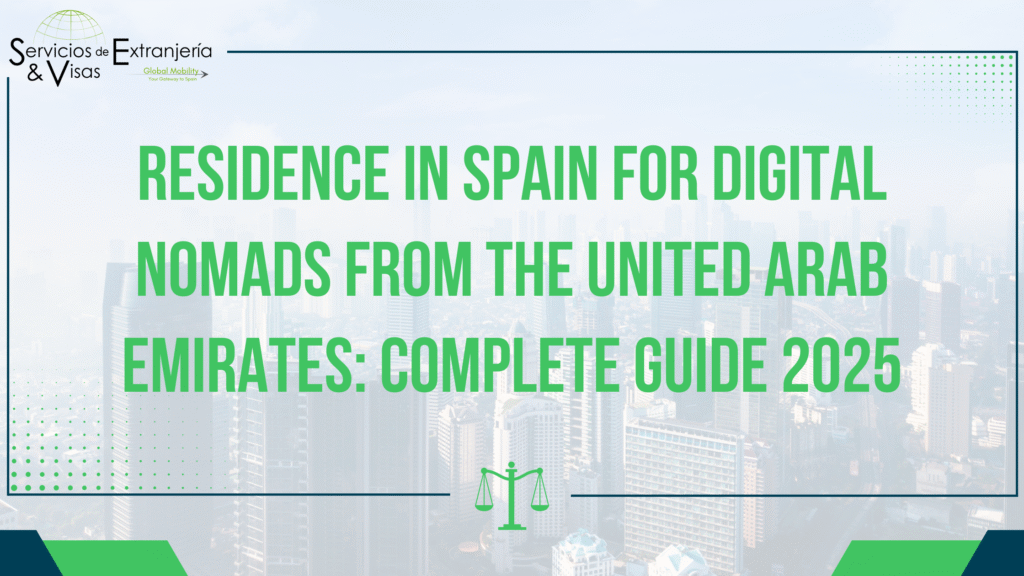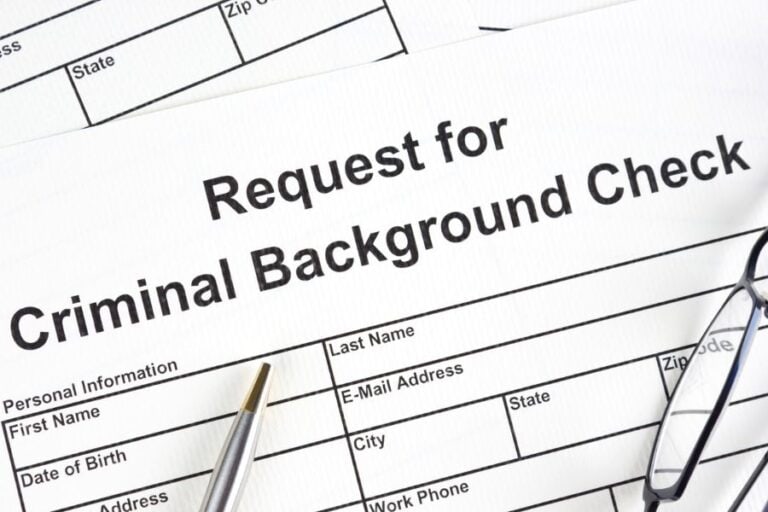Residence in Spain for Digital Nomads from the United Arab Emirates: Complete Guide 2025

If you are a citizen of the United Arab Emirates and dream of living in Spain while working remotely for your company in Dubai, Abu Dhabi, or another Gulf city, this article is written for you. We will explain how Spain’s digital nomad visa works, what requirements you must meet, and how you can maintain your taxation in the UAE. We can help you plan your best professional and financial future.
Spain opens its doors to digital nomads
Spain has become one of the most attractive destinations in the world for remote workers. Its climate, quality of life, safety, and cultural wealth make it especially appealing to Emirati professionals seeking to combine work with a Mediterranean lifestyle. With the approval of Law 14/2013 and its most recent developments, a specific visa was created for international remote workers, popularly known as the digital nomad visa. This visa allows you to legally reside in Spain while working remotely for a foreign company, through a simplified procedure and conditions designed for international profiles.
Two possible paths: consular visa or direct residence
As a UAE citizen, you have two main options to obtain residence as a digital nomad. First, you can apply for a consular visa in Abu Dhabi: you may request a visa of up to one year at the Spanish Embassy. Once in Spain, you can convert it into a residence permit valid for up to three years, renewable for a further two years.
Alternatively, you can apply directly for residence from within Spain. Since UAE citizens are exempt from the Schengen visa for short stays, you may enter as a tourist and apply directly for the remote work residence permit from inside the country. This option grants an initial three-year residence, also renewable. Both routes are valid, and the most suitable one will depend on your personal circumstances.
What key requirements must you meet?
The digital nomad visa is not complex, but you must clearly demonstrate that you meet the minimum conditions. These include, regarding remote work for your foreign employer: if you are employed, your contract must expressly allow remote work and you must have been working with your employer for at least three months before applying. Alternatively, if you are self-employed, no more than 20% of your clients may be based in Spain; the rest must be abroad.
Regarding education or experience, you will be required to hold a university or postgraduate degree, or alternatively prove at least three years of professional experience. In addition, you must demonstrate minimum income equal to 200% of the Spanish minimum wage, which currently amounts to around €2,600 per month. If you travel with your family, additional percentages apply for each member.
Finally, it is essential to have health insurance, either through private insurance in Spain or by registering with the Spanish Social Security system. You must also provide a criminal record certificate covering the last two years from your country of residence, duly legalised and translated into Spanish.
- What documentation do you need to provide?
For your application to succeed, it is essential to have all documents prepared and up to date. The main documents include: a valid passport, your Foreigner Identification Number (NIE) — which in Abu Dhabi must be obtained before your appointment —, your employment contract or service contracts if you are self-employed, and your company’s documentation (commercial register, corporate website, proof of activity) if applicable. You must also provide bank statements or payslips proving your income, documentation certifying full health insurance coverage in Spain, and finally the criminal record certificate, legalised and translated.
At Servicios de Extranjería, we guide our clients through this entire process to ensure every document meets the exact requirements demanded by the Embassy or by the Large Companies Unit in Spain.
Social Security: an important detail
A crucial aspect for UAE citizens is Social Security. Spain and the UAE do not have a bilateral agreement in this area. As a result, if you are an employee, your foreign company must register with the Spanish Social Security system and pay contributions on your behalf. If you are self-employed, you will need to register with the Special Regime for Self-Employed Workers (RETA). This may sound complicated, but with proper advice it becomes just another simple step in your residence application.
Maintaining taxation in the UAE: what you need to know
The main question for many clients is: Can I live in Spain and continue paying taxes in the UAE? The answer is yes, provided you plan your stay carefully. The general rule of the Spanish Tax Agency is that you are considered a tax resident in Spain if you spend more than 183 days in the country within a calendar year, or if your centre of economic and family interests is located in Spain (remember that the digital nomad visa grants administrative residence, but tax residence follows separate criteria).
If your goal is to continue paying taxes in the UAE, you must ensure your stay in Spain does not exceed 183 days and that your employer remains foreign, without a permanent establishment in Spain. Moreover, the Double Taxation Agreement between Spain and the UAE states that if three conditions are met (short stay, non-resident employer, and salary not borne by a Spanish entity), your income is taxable only in the UAE. The best way to safeguard this position is to request each year from the UAE Federal Tax Authority your Tax Residency Certificate (TRC), proving your fiscal residence there.
What are the advantages of this visa for UAE citizens?
Choosing Spain’s digital nomad visa offers multiple benefits. It allows you to reside in an EU country with all the associated mobility advantages. It also enables you to bring your spouse, children, and even dependent ascendants with linked permits. Equally important, it provides a secure legal framework for remote work without complications and opens the door to long-term residence in Spain should you eventually decide to settle for longer.
Why seek specialist advice?
Although the process may seem straightforward, the reality is that document preparation, sworn translations, Social Security coordination, and tax planning require precision. A single mistake could delay or even jeopardise your application. At Servicios de Extranjería, we help UAE citizens plan the entire process: from gathering documents in Dubai or Abu Dhabi to obtaining residence in Spain and applying the tax treaty correctly to maintain your taxation in the UAE.
Take the step: start your life in Spain with peace of mind.
Living in Spain while keeping your international career and your tax residence in the UAE is a real opportunity. With the digital nomad visa, you can combine the best of both worlds: Spanish quality of life and the financial security of your home country. At Servicios de Extranjería, we provide you with professional, tailored, and specialised support to ensure your move is a success.
👉 Contact us through our online form at serviciosdextranjeria.com and discover how we can help you take this big step towards your new life in Spain.








